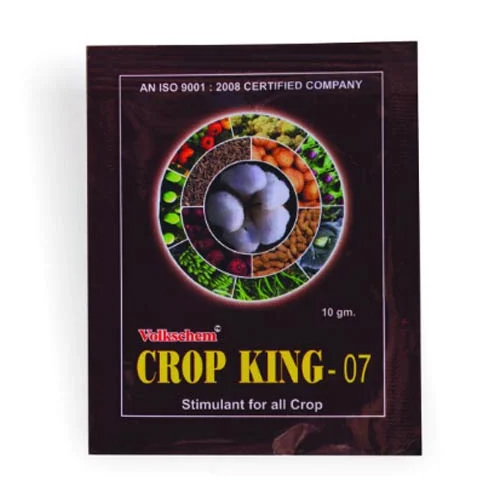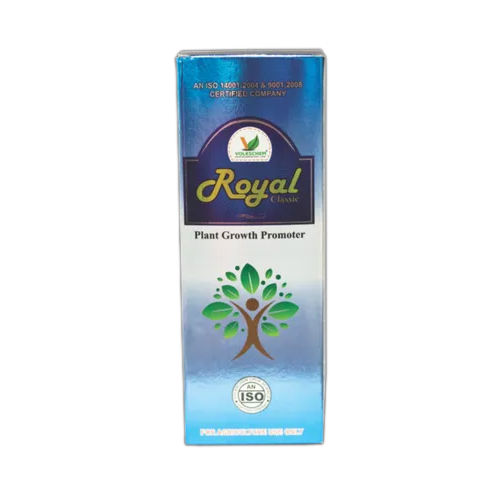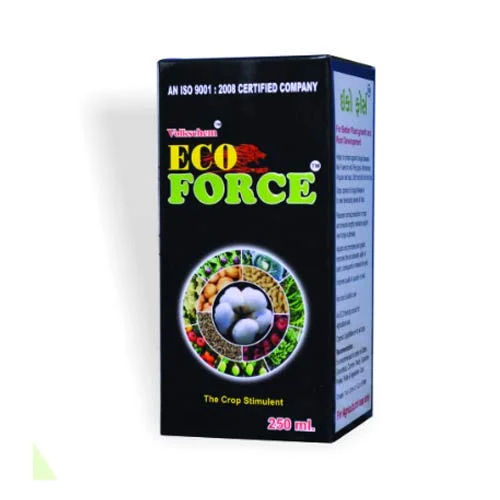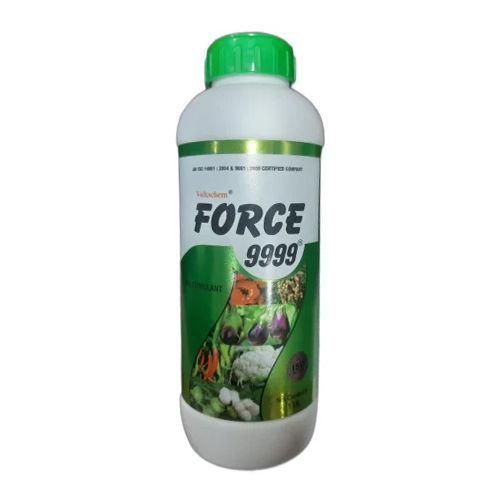Call Us
08045812227

Plant Growth Stimulant
250 INR/Pack
Product Details:
- Classification Organic Fertilizer
- Physical State Liquid
- Release Type Controlled
- Application Agriculture
- Color Black
- Solubility 100%
- Storage Dry place
- Click to view more
X
Plant Growth Stimulant Price And Quantity
- 250 INR/Pack
- 200 Pack
Plant Growth Stimulant Product Specifications
- Controlled
- Black
- Liquid
- 100%
- Agriculture
- Dry place
- Organic Fertilizer
Plant Growth Stimulant Trade Information
- Cash Advance (CA)
- 5000 Pack Per Month
- 7-10 Days
- All India
Product Description
Plant growth stimulants are substances or treatments used to enhance the growth, development, and overall health of plants. These stimulants can come in various forms, including natural compounds, synthetic chemicals, or biological agents.
Here are some common types of plant growth stimulants:
1. Hormones: Plant hormones play crucial roles in regulating various physiological processes such as growth, development, and response to environmental stimuli. Examples include auxins, cytokinins, gibberellins, abscisic acid, and ethylene. Synthetic forms of these hormones are often used in agriculture to manipulate plant growth.
2. Biostimulants: Biostimulants are substances or microorganisms that stimulate natural processes in plants to improve nutrient uptake, stress tolerance, and overall growth. They can include seaweed extracts, humic and fulvic acids, amino acids, and beneficial microorganisms like mycorrhizal fungi and rhizobacteria.
3. Fertilizers: Fertilizers provide essential nutrients to plants, promoting growth and development. In addition to traditional NPK (nitrogen, phosphorus, potassium) fertilizers, there are specialized formulations containing micronutrients, organic matter, or slow-release nutrients that can stimulate plant growth.
4. Microbial Inoculants: Beneficial microorganisms such as nitrogen-fixing bacteria, mycorrhizal fungi, and plant growth-promoting rhizobacteria (PGPR) can form symbiotic relationships with plants, enhancing nutrient uptake, disease resistance, and overall growth.
5. Enzymes: Enzymes can facilitate various biochemical reactions within plants, promoting nutrient absorption, cell division, and metabolism. Enzyme-based products are often used to improve soil health and stimulate plant growth.
6. Natural Extracts and Elicitors: Certain plant extracts, such as seaweed extracts, fish hydrolysates, and plant-derived compounds like chitosan, can stimulate plant growth by inducing defense mechanisms, enhancing nutrient uptake, or promoting hormonal balance.
7. Biochar: Biochar is a carbon-rich material produced by heating organic matter in a low-oxygen environment. It can improve soil structure, water retention, and nutrient availability, thereby stimulating plant growth and enhancing soil fertility.
8. Stress Alleviators: Some substances help plants cope with environmental stressors such as drought, salinity, or extreme temperatures, thereby indirectly promoting growth by reducing stress-induced growth limitations.
9. Light and Temperature Management: Proper light and temperature management techniques, such as supplemental lighting, shading, and temperature control, can optimize plant growth and development in controlled environments like greenhouses.
10. Genetic Modifications: Advances in biotechnology have led to the development of genetically modified (GM) plants with enhanced growth characteristics, such as increased yield, stress tolerance, or nutrient efficiency.
Plant Growth Stimulant FAQ:
Q: How do plant growth stimulants work?
A: Plant growth stimulants work through various mechanisms, including promoting nutrient uptake, enhancing hormone balance, improving soil health, stimulating beneficial microbial activity, and mitigating environmental stressors.
Q: What types of plant growth stimulants are available?
A: Common types of plant growth stimulants include hormones (e.g., auxins, cytokinins), biostimulants (e.g., seaweed extracts, humic acids), fertilizers (e.g., NPK formulations), microbial inoculants (e.g., mycorrhizal fungi, rhizobacteria), enzymes, natural extracts, biochar, stress alleviators, and techniques for light and temperature management.
Q: How should plant growth stimulants be applied?
A: The application method and dosage of plant growth stimulants depend on factors such as plant species, growth stage, soil conditions, and environmental factors. It's essential to follow recommended application rates and methods provided by manufacturers.
Q: Are plant growth stimulants safe for the environment?
A: While many plant growth stimulants are considered safe when used as directed, it's important to consider their potential environmental impact. Using organic or eco-friendly formulations, applying products responsibly, and avoiding overuse can minimize adverse effects on the environment.
Q: Can plant growth stimulants replace traditional fertilizers?
A: Plant growth stimulants complement traditional fertilizers by enhancing nutrient uptake and promoting overall plant health. However, they are not meant to replace fertilizers entirely but rather to optimize their effectiveness and reduce reliance on chemical inputs.
Q: Are plant growth stimulants suitable for all types of plants?
A: Plant growth stimulants can benefit a wide range of plant species, including ornamentals, fruits, vegetables, herbs, and crops. However, the specific needs and responses of different plants may vary, so it's essential to select stimulants appropriate for the target plants and growing conditions.
Q: Can plant growth stimulants improve crop yield?
A: When used appropriately, plant growth stimulants can contribute to improved crop yield by promoting healthier plants, increasing stress tolerance, enhancing nutrient uptake, and optimizing growth conditions. However, their effectiveness may vary depending on factors such as crop type, environmental conditions, and management practices.
Q: Are there any regulations or restrictions on the use of plant growth stimulants?
A: Regulations regarding the use of plant growth stimulants may vary by region and product type. It's important to familiarize oneself with local regulations, label instructions, and safety guidelines when using these products. Additionally, some organic certification standards may dictate restrictions on certain stimulants or application methods.
Enter Buying Requirement Details

 English
English Spanish
Spanish French
French German
German Italian
Italian Chinese (Simplified)
Chinese (Simplified) Japanese
Japanese Korean
Korean Arabic
Arabic Portuguese
Portuguese




 Call Me Free
Call Me Free